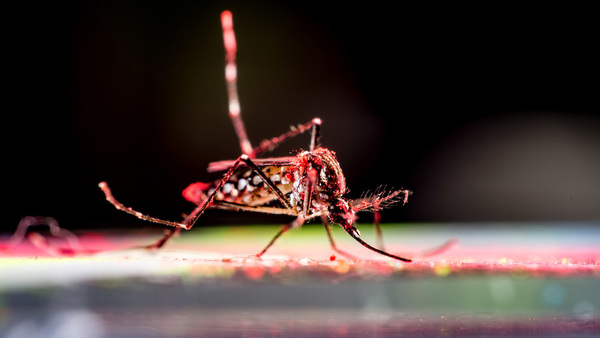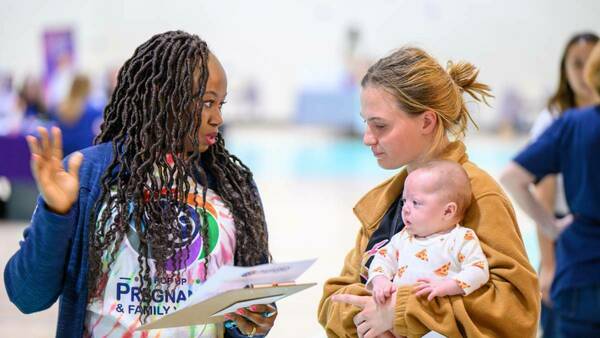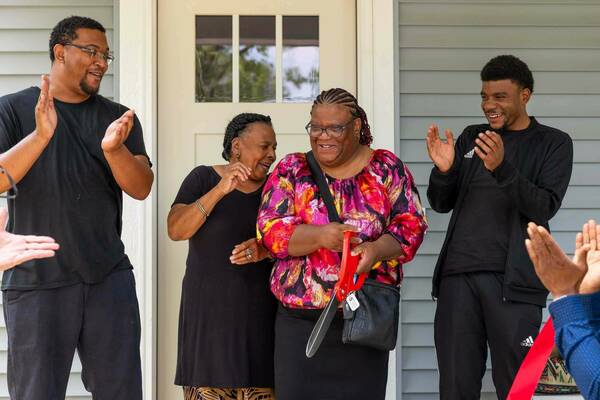Researchers to develop electronic nose for rapid disease detection

The U.S. National Science Foundation (NSF) Convergence Accelerator Program has awarded $650,000 to the University of Notre Dame to support the development of an advanced electronic nose that researchers say could help prevent the next pandemic.
“Human health is linked with animal health, and we saw during the COVID-19 pandemic what can happen when a disease passes from animals to humans and continues to spread uncontained,” explained Nosang V. Myung, the Bernard Keating-Crawford Endowed Professor in the Department of Chemical and Biomolecular Engineering.
Myung, who also directs the micro- and nanoscale biomedical instrumentation theme at the Berthiaume Institute for Precision Health, will lead the development of the new technology. His team is one of 16 teams awarded under Track L: Real-World Chemical Sensing Applications.
Myung said the electronic nose will build on existing technologies developed in his lab at Notre Dame. It will complement conventional disease prevention and management approaches by adding real-time disease monitoring.
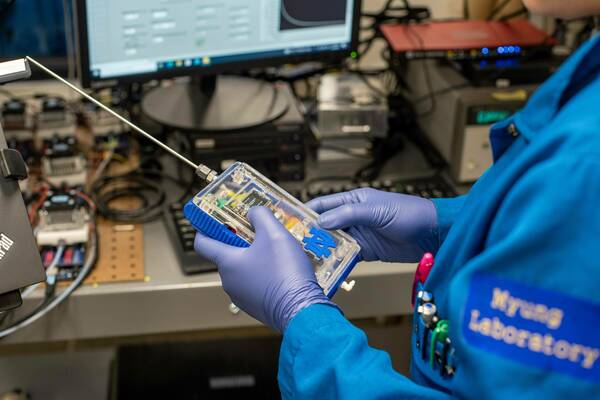
To build the device, Myung and his team of collaborators will develop new, high-sensitivity materials using nano-engineering processes. Still, Myung says the device will be portable and affordable, so it can be used on-site by farmers, packing plant inspectors, animal husbandry technicians and others.
“The idea is to use data to make critical decisions quickly — to isolate or treat infected animals, for example — to minimize the spread of diseases,” Myung explained.
During the project’s first phase, Myung and his collaborators will equip the electronic nose to detect avian flu, which resulted in more than 40 million animal deaths and over $2.5 billion in economic losses during a 2022 outbreak. The researchers will gather data from infected birds and healthy birds and will employ machine-learning techniques to train the electronic nose to distinguish between the two.
At the same time, Emily Stoler, assistant director of risk assessment at Notre Dame’s IDEA Center, will work with Myung and his team to evaluate and pursue potential commercial opportunities associated with the electronic nose technology.
During the project’s second phase, the researchers will train the electronic nose to detect an array of other infections, both in animals and in humans. The end result will be a flexible monitoring system that can be taken to sites where infections are most likely to occur or spread.
Finally, the researchers will develop a user-friendly graphic interface that allows users to operate the device wirelessly using a smartphone and see results in real-time.
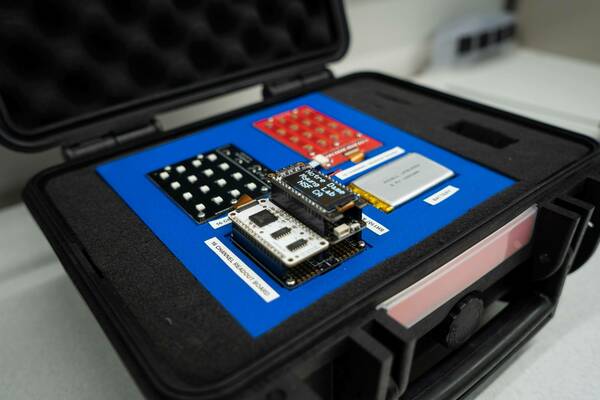
Although it has been two decades since a landmark experiment found that dogs were effective at using smell to detect human bladder cancer, the use of smell for disease diagnosis remains rare. Myung said the new device has the potential to show that smell is a valuable surveillance technique that can be affordable, accessible and also highly sensitive. The team predicts that the electronic nose will be capable of detecting smells at a sensitivity of one part per billion.
The academic collaborators who will join Myung in developing the electronic nose technology include:
- Richard Bowen, a professor of reproductive biology and virology at Colorado State University. Bowen also directs the Animal Models Core of the Rocky Mountain Regional Center of Excellence for Biodefense and Emerging Infectious Disease.
- Yamil Colón, assistant professor in Notre Dame’s Department of Chemical and Biomolecular Engineering. Colón is an expert in computational materials discovery and design.
- Bruce Kimball, a chemical ecologist at the Monell Chemical Senses Center. Monell is an independent, nonprofit scientific institute dedicated to interdisciplinary basic research on taste and smell.
To learn more, visit myung-lab.com.
Originally published by at research.nd.edu on Feb. 16.
Latest ND NewsWire
- Researchers deconstruct chikungunya outbreaks to improve prediction and vaccine developmentThe symptoms come on quickly — acute fever, followed by debilitating joint pain that can last for months. Though rarely fatal, the chikungunya virus, a mosquito-borne illness, can be particularly severe for high-risk individuals, including newborns and older adults. While the virus is common…
- Eck Institute investigator to strengthen postpartum care for Indiana mothersYenupini Joyce Adams, associate professor of the practice and maternal health lead for the Eck Institute for Global Health at the University of Notre Dame, is partnering with Beacon Health System to pilot a new, first-of-its-kind postpartum care model in the South Bend-Elkhart community.
- Gen. Martin Dempsey to speak at Notre Dame Forum event on ‘Hope, Global Stability and the Role of the United States’Gen. Martin Dempsey, the retired 18th chairman of the Joint Chiefs of Staff, will join University President Rev. Robert A. Dowd, C.S.C., for a fireside chat at 4 p.m. Friday (Oct. 10), as part of the 2025-26 Notre Dame Forum. The discussion, titled “Hope, Global Stability and the Role of the United States,” is part of the exploration of this year’s Notre Dame Forum theme, “Cultivating Hope.” It will take place in Rooms 215/216 of McKenna Hall and will also be livestreamed. The event is free and open to the public.
- University of Notre Dame joins the Global Coalition of Ukrainian StudiesThe University of Notre Dame has joined the Global Coalition of Ukrainian Studies after signing a memorandum of cooperation, formalized Sept. 24, at the Ukrainian Institute of America in New York City. Notre Dame joined four other American institutions that were also publicly welcomed to the coalition at this event: Arizona State University, Columbia University, Manor College and the Shevchenko Scientific Society.
- One year later, Inauguration Build a ‘dream come true’ for Habitat familiesOne year later, work on Inauguration Build 2024 is complete, offering shelter and so much more to five local families.
- Alumni Association and YoungND honor 2025 Domer DozenThe Notre Dame Alumni Association announced its 2025 Domer Dozen cohort, honoring 12 graduates ages 32 and younger for excellence in their contributions in learning, service, faith and work — the core pillars of the association’s mission.








